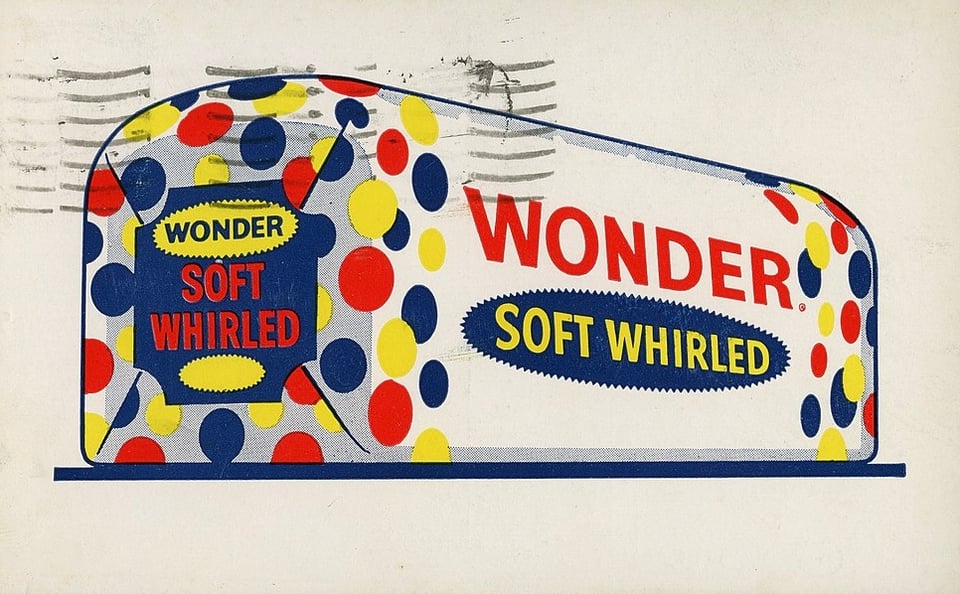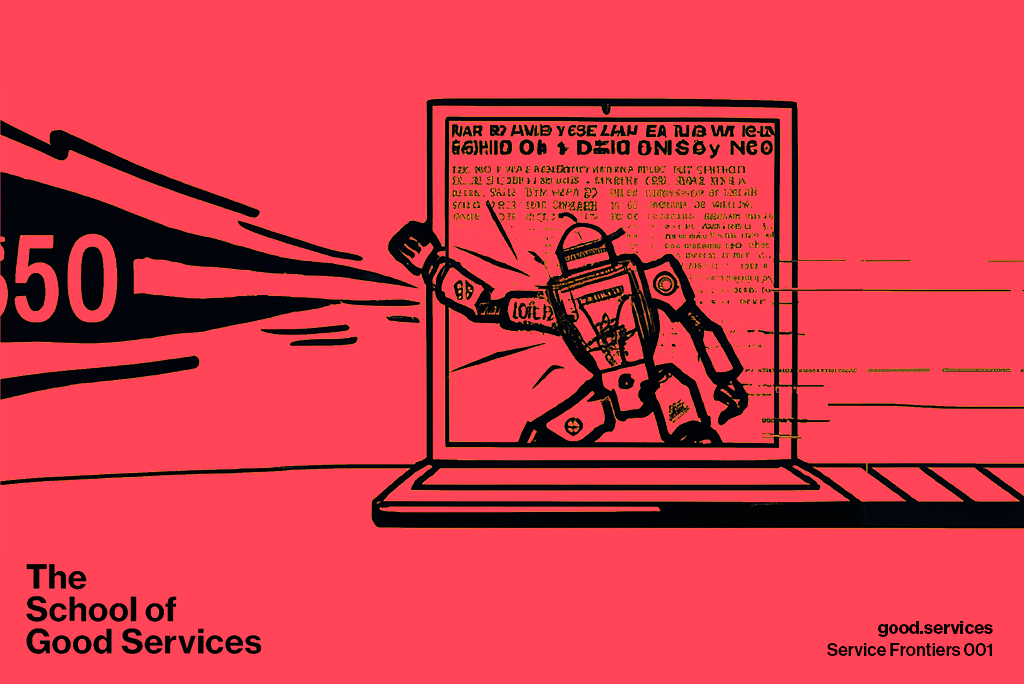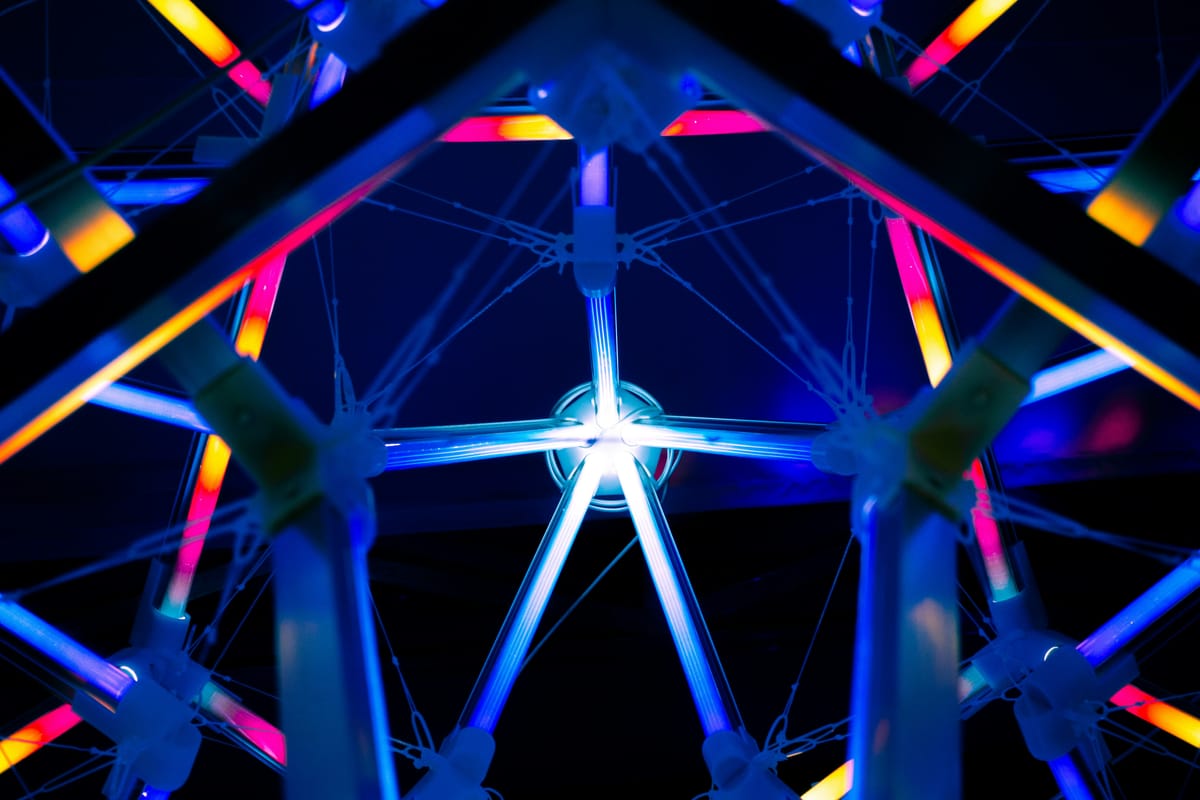Better than sliced bread (#1)
My recent post on scepticism proved quite popular, and I got some nice feedback (thank you).
At risk of labouring the point, I thought I might continue in the same vein and occasionally compile stories that catch my eye/attention when they pop up in my timeline.
Nothing particularly big or clever, just a gentle push back on the prevailing "this wonderful new technology is the greatest thing since sliced bread" narrative. Welcome to #1.

Talking of bread, James Plunkett gave a magnificent digital transformation keynote at last year's Camp Digital which, amongst other valuable nuggets, contained an anecdote about bread.
I think about it a lot when I'm getting drenched by the automation-will-revolutionise-our-lives fire hose.
You can watch the full keynote here.
Are "cashier free" shops what they claim to be?
No. This Guardian editorial riffs on a story first broken by The Information last year. It revealed just how much manual processing was taking place behind the scenes (in fact, 1000s of miles away) in Amazon's now-abandoned 'Just Walk Out!' stores.
It makes the point that in the case of many supposedly automated solutions there is often a hidden, marginalised workforce keeping the lights on, helping systems learn, and plugging enormous data gaps.
It brought to mind a couple of excellent articles from last year:
👇 Josh Dzieza's incredible, detailed investigation into "work that people want to automate, and often think is already automated, yet still requires a human stand-in”.
/cdn.vox-cdn.com/uploads/chorus_asset/file/24737787/236709_ai_data_notation_labor_scale_surge_remotasks_openai_chatbots_RParry_001.jpg)
Inside the AI Factory: the humans that make tech seem human - The Verge
How many humans does it take to make tech seem human? Millions.
👇 Sarah Drummond's considered take on the implications of AI on service delivery, complete with automation backstory.

Service Frontiers 001: The Robots are coming — Good Services
Our first frontier, ‘The Robots are Coming’ looks at the rise of AI in service delivery and what that means for the future how we design and deliver services.
Is AI about to replace your smartphone?
No. The first reviews for Humane's much-lauded "artificially intelligent pin that wants to free you from your phone" have not been kind.
Maybe it's unfair to chide a product that was clearly experimental and in the 'shape of things to come' category.
Then again it has been enormously hyped, had hundreds of millions of dollars of investment, and is retailing at a cool $700.
The Humane AI Pin is the solution to none of technology's problems
Engadget's in-depth review of the Humane AI Pin wearable.
On a closely related note, Dave Karpf's top-notch post on the as-yet-unfulfilled promise of the digital butler helps to put ✨magic beans✨ products like the Humane Ai Pin and Rabbit R1 in context.
It’s well worth your time + you should really subscribe to his newsletter while you’re at it.
Has Google's DeepMind discovered millions of new materials?
No. This is a detailed reframing – from the exemplary 404 Media – of Google's breathless press release which was originally published alongside an article in Nature.
The 404 piece is careful not to discredit the approach overall and the "promise shown" but calls into question the conclusions drawn.

Is Google's AI Actually Discovering 'Millions of New Materials?'
"In the DeepMind paper there are many examples of predicted materials that are clearly nonsensical."
Will Apple's Vision Pro give me black eyes?
Mmmmaybe. To be fair, the answer is more likely a 'No' (at least not the conventional black eyes you get when you've been scrapping).
I saw a lot of sensationalist links popping up about it, but it seems more like a tweet that grew into some lazy tabloid headlines and terrible graphics.

Another Apple VR Side Effect: Black Eyes
Apple's Vision Pro VR headset is giving some users literal black eyes, MarketWatch reports, thanks to an awkward fit.
A hill I will more readily die on is that the Vision Pro, and Augmented/Virtual Reality (or must I call it spatial computing?) in general, is an elaborate distraction – a niche concept, with niche use cases, dressed up as a mass-market solution.
So there we go.
Will there ever be a #2? Who knows! If not, you can consider this a collector's item.
Normal newslettering will resume shortly.
Add a comment: